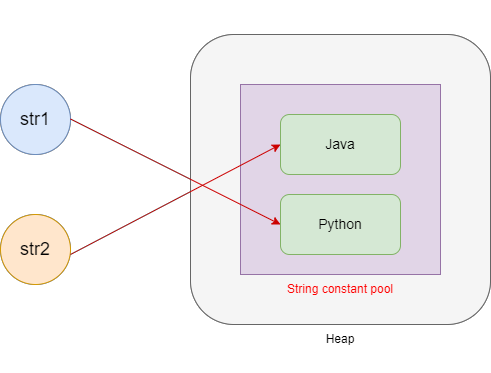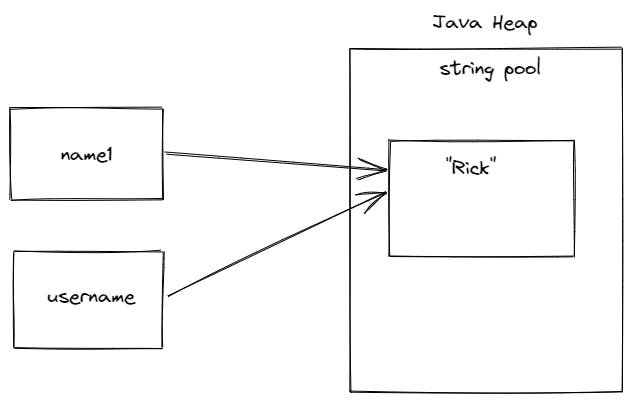Immutable Strings: A Secret Component in Ensuring Information Consistency and Reliability
In the world of data monitoring, the importance of immutable strings can not be overstated. These unchanging sequences of personalities play a critical duty in promoting the integrity and precision of details within systems. By maintaining a state of immutability, information consistency is made sure, cultivating a foundation of dependability whereupon vital processes rely. The principle of unalterable strings goes beyond plain technicality; it is a cornerstone in the complex internet of information administration. As we explore the benefits, execution approaches, and practical applications of immutable strings, a more clear image arises of their important nature in protecting the digital landscape.
The Idea of Unalterable Strings
Unalterable strings, a fundamental principle in shows, describe strings that can not be changed as soon as they are developed. Fundamentally, when a string value is designated, any type of operation that shows up to change the string actually creates a new string. This immutability ensures information uniformity and reliability in applications, as it prevents unexpected modifications to the initial information.
Advantages in Information Uniformity

Data consistency is important in different elements of software growth, including database administration, multi-threaded settings, and distributed systems (Why are strings immutable in Java?). Immutable strings contribute considerably to accomplishing this consistency by avoiding data corruption as a result of simultaneous gain access to. In situations where several procedures or threads interact with the very same data concurrently, immutable strings serve as a safeguard against race conditions and synchronization concerns
Moreover, the immutability of strings simplifies debugging and testing procedures. With unalterable strings, programmers can rely on that once a string is set, it will certainly stay unchanged, making it less complicated to map the source of mistakes and making sure that examination cases create constant results. This reliability in data managing inevitably leads to extra secure and durable applications.

Executing Immutable Strings
Ensuring the immutability of strings calls for a thoughtful strategy to their execution in software program advancement. One essential method is to develop string classes in a method that avoids alterations as soon as a string item is created. By making strings immutable, programmers can boost information uniformity and reliability in their applications.
To apply unalterable strings properly, developers need to favor developing new string objects as opposed to customizing existing ones. This technique makes sure that as soon as a string is appointed a worth, it can not be altered. In addition, any operation that appears to change the string should develop a new string with the wanted adjustments as opposed to modifying the click here for info original.
Moreover, utilizing unalterable strings can streamline concurrency management in multi-threaded environments. Given that immutable strings can not be changed after development, they can be safely shared amongst multiple threads without the risk of data corruption.
Function in Integrity Guarantee
In software program advancement, the application of unalterable strings plays an essential function in making sure the integrity of information operations. Immutable strings, once produced, can not be changed, guaranteeing that the data they stand for remains regular throughout the application's execution. This immutability residential property supplies a degree of guarantee that the data being refined will certainly not be accidentally transformed, leading to unexpected outcomes or mistakes in the system.
By incorporating immutable strings right into software design, designers can improve the dependability of their applications by lessening the dangers connected with mutable information - Why are strings immutable in Java?. Immutable strings assist in avoiding data corruption or unintentional modifications, which can be particularly crucial when handling sensitive information or when data honesty is vital
Moreover, the usage of immutable resource strings simplifies simultaneous handling, as several strings can safely access and share string information without the risk of one string altering the content while one more reads it. This element contributes significantly to the overall dependability of the software system, making certain regular and predictable habits in information managing operations.
Applications and System Assimilation
The smooth integration of immutable strings into different applications and systems is crucial for guaranteeing durable data uniformity and reliability throughout diverse technical settings - Why are strings immutable in Java?. Immutable strings play an important duty in enhancing the integrity of data exchanges and communications within complicated software program ecological communities. By integrating unalterable strings right into applications, programmers can minimize the threats connected with information meddling, unauthorized modifications, and inadvertent modifications, therefore fortifying the total security position of the system
In the context of system integration, immutable strings function as a foundational component for developing protected communication channels and assisting in smooth data transfers between different elements. Their unalterable nature guarantees that information transferred in between systems stays proven and unchanged, lowering the likelihood of inconsistencies or errors that could endanger the integrity of the entire system. Furthermore, unalterable strings can boost interoperability between inconsonant systems by giving a standardized layout for information depiction, enabling a lot more efficient data processing and exchange protocols throughout interconnected systems. By taking on unalterable strings in applications and system integration procedures, organizations can strengthen their information infrastructure and support the dependability and consistency of their info possessions.
Conclusion
To conclude, unalterable strings play a crucial duty in keeping data uniformity about his and reliability in different applications and system combinations. By making sure that strings can not be changed when created, the honesty of data is maintained, minimizing the danger of mistakes and variances. Implementing immutable strings can significantly boost the dependability of systems, ultimately resulting in more dependable and exact information processing.
